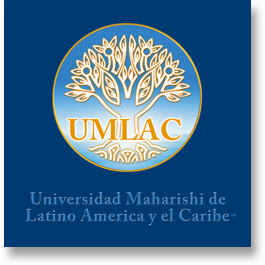MS Nursing (Future)
The MS in Nursing program is a leadership role designed for nurses who want to make a difference in the clinical setting or provide leadership in educating others to gain these skills. The program assumes responsibility for patient care outcomes through the assimilation and application of evidence-based information to design, implement, and evaluate patient-care processes and models of care delivery. The MS Nurse is a provider and manager of care at the point of care to individuals and cohorts of patients anywhere healthcare is delivered by coordinating and supervising the care provided by interdisciplinary team members. This master’s clinical leadership nursing role includes development of skills in precepting, mentoring, and coaching and can be applied in educational as well as clinical settings.
The curriculum is designed to include the required clinical experiences and competencies for the MS Nurse as delineated in the American Association of Colleges of Nursing (AACN) Competencies and Curricular Expectations for Clinical Nurse Leader-Education and Practice. (AACN website) Upon graduation, candidates are eligible to sit for the Certification Examination administered by the Commission on Nurse Certification. The CNL certification is based upon a national standard of requisite knowledge and experiences, thereby assisting employers, the public and members of the health professions in the competencies of the MS Nurse.
MS in Nursing Student Learning Outcomes
Graduates of the program are prepared for the following aspects of practice, based upon the AACN Competencies and Curricular Expectations for MS in Nursing:
1. Clinical leadership for patient-care practices, including the design, coordination and evaluation of care for individuals, families, groups and populations
2. Participation in identification and collection of care outcomes
3. Accountability for evaluation and improvement of point-of-care outcomes, including the synthesis of data and other evidence to evaluate and achieve optimal outcomes
4. Risk anticipation for individual and cohorts of patients
5. Lateral integration of care for individual and cohorts of patients
6. Design and implementation of evidence-based practice(s)
7. Team leadership management and collaboration with other health professional team members
8. Information management or the use of information systems and technologies to improve healthcare outcomes
9. Stewardship and leveraging of human, environmental and material resources
10. Advocacy for patients, communities and health professional teams
Program Curriculum
| Year | Semester | Course | Credits |
| 1 | I | Nursing Graduate Orientation Module | 0 |
| Applied Statistics for Evidence-Based Practice | 3 | ||
| Pathophysiology Across the Life Span | 4 | ||
| Organizational and Management Theory | 3 | ||
| Leadership and Healthcare Systems: Policy, Organization, Financing of Health Care | 0 | ||
| II | Research for Evidence-Based Practice | 2 | |
| Advanced Pharmacology | 3 | ||
| Healthcare Outcomes | 3 | ||
| Health Promotion and Disease Prevention in Culturally Diverse Populations | 3 | ||
| Ethics for Advanced Practice Nursing | 0 | ||
| 2 | III | Research for Evidence Based Practice 2 | |
| The Diagnostic Physical Exam Across the Life Span | 3 | ||
| Leadership Development | 3 | ||
| Education and Mentoring in the Clinical Setting ** | 3 | ||
| IV | Introduction to Health Informatics | 3 | |
| Contemporary Issues in Nursing and the CNL Role Seminar ** | 2 | ||
| CNL Clinical Practicum 1 ** | 2 | ||
| CNL Clinical Practicum 2 ** | 3 | ||
| Comprehensive Exam | |||
| Total | 42 |
Department of Integrative Health
Vision Statement and Goal
The goal of the College of Integrative Medicine is to fulfill the current global need to provide a holistic and scientific system of health care for prevention and cure, for both individual and collective health.
At this medical College all the main topics of modern medicine and Maharishi Ayurveda are studied in light of their basis in Total Knowledge—the Veda—the inner intelligence of human physiology; and in light of the student’s experience of developing higher states of consciousness.
Our Unique Approach
Maharishi Ayurveda is the ancient and timeless Vedic approach to medicine, which was brought to light in this scientific age for its authentic value of theory and practice by Maharishi Mahesh Yogi, in conjunction with the world’s foremost experts in Ayurvedic Medicine and physicians and scientists in modern medicine.
Future Programs
In alignment with its Vision, UMLAC plans to continue adding programs and their supervisory Departments. In addition to this Program, below you will find a series of programs which are scheduled to start in the near future.
